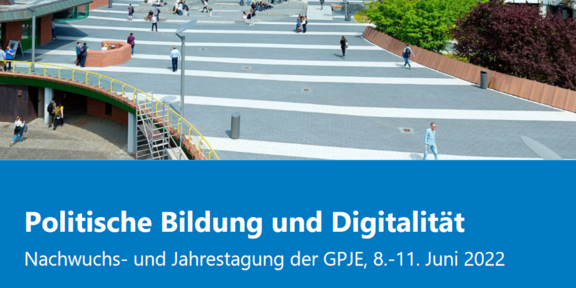Contribution at GPJE: Migration background and political knowledge – who knows what?
- News

At this year's GPJE at the University of Trier, Pascal Alscher will present first results of the study on the development of political and social competence in adolescence (EPKO). In his presentation on “Migration background and political knowledge - who knows what?” he focuses on the results of a total of 1,047 7th and 10th grade students from different types of schools in North Rhine-Westphalia, who were tested on their political knowledge as part of the survey. Preliminary results of an explanatory item response model show that children with and without a migration background differ more in their general than in their German-specific knowledge. Moreover, only a partial compensation of the differences for general knowledge can be observed, but no compensation of the differences for Germany-specific knowledge. The reason for this could be that school-based learning opportunities focus more on general than on Germany-specific political knowledge.
The background to the question is that democracies function well when as many citizens as possible participate. However, democracy in Germany, as in many other countries, faces the challenge that certain population groups systematically participate less politically than others do. Taking into account voting eligibility at the time of the 2017 Bundestag elections, the participation gap was about 15% in favor of people without an immigrant background. One of the most important individual determinants of people's political participation is political knowledge. Compared to parents born in Germany, parents born abroad are likely to find it more difficult to teach their children about the peculiarities of the political system in the Federal Republic of Germany.





